The Global Pulse: Khalil Radi
Swiss company Buy Food with Plastic has been distributing meals in exchange for plastic bottles since 2018. The start-up has also attracted the attention of the business magazine Forbes. Co-founders Anna Gracia Herbst and Khalil Radi were nominated for the "30 Under 30 – Europe – Social Impact" list. On the occasion of this award, we spoke to Khalil, who is not only a successful founder but also a former student at ZHAW.
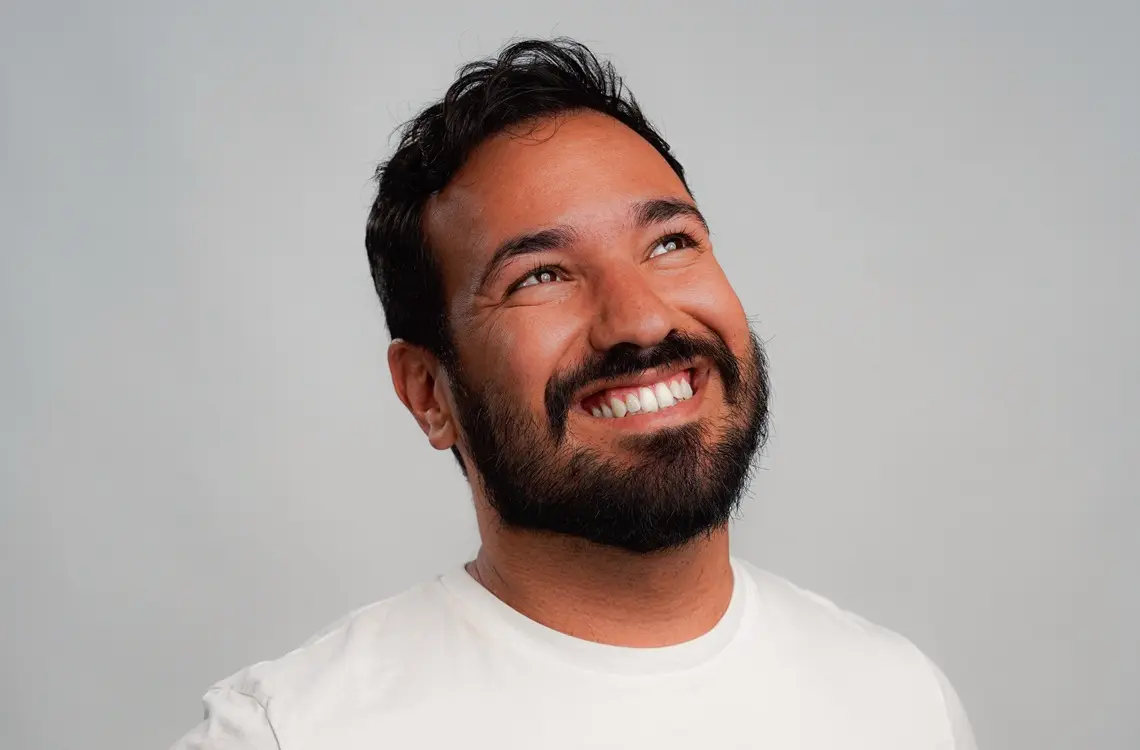
Khalil, first of all, congratulations on being nominated by Forbes. What does this award mean for you and Buy Food with Plastic?
This nomination is extremely helpful to us as a company. It creates a lot of trust for outsiders and acts as a seal of quality. Until now, I have always thought that Forbes nominated the person with the highest sales. Forbes has now also reached a point where it considers companies that make an impact rather than simply making money, which is very pleasing and necessary for our world. It also gives me hope that our nomination will motivate others to get involved in similar social and environmental issues – because they know it will be recognized globally.
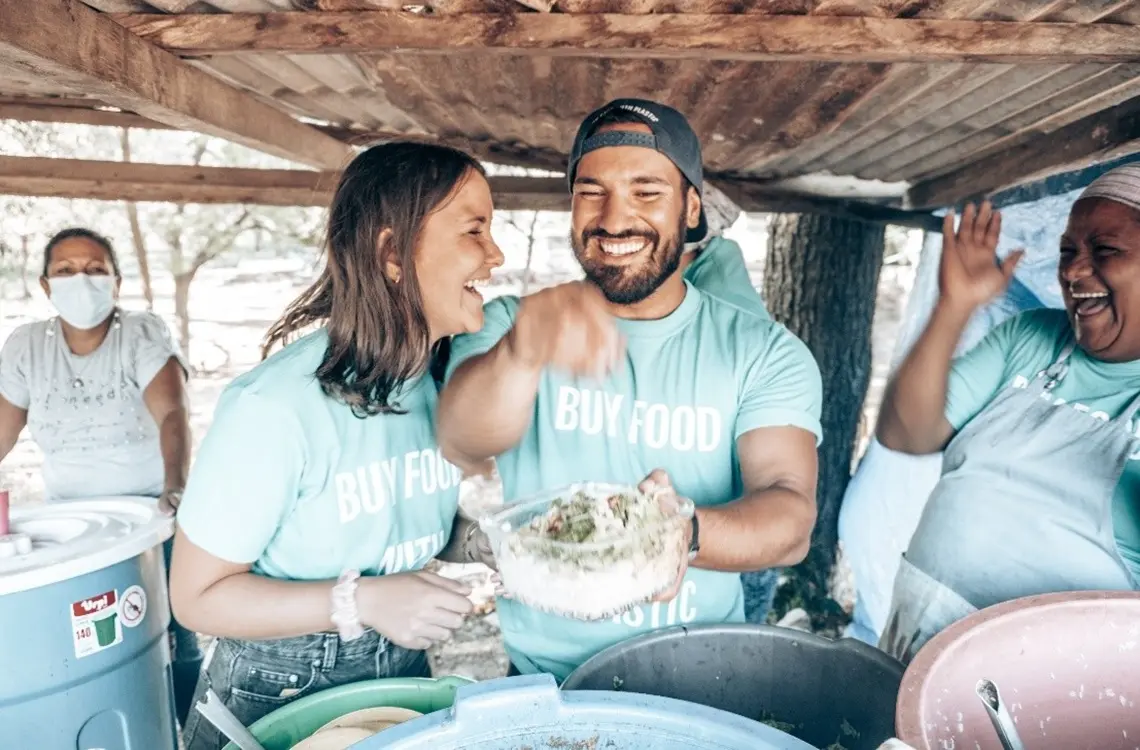
Can you explain the Buy Food with Plastic business model in a bit more detail?
Business model is actually the wrong term for what we do. I prefer to call it an "impact model." Our concept is geared towards having as positive an impact as possible on people and the environment. We have a huge plastic problem and a huge hunger problem in our world. But instead of simply giving away food or collecting plastic, these two problems can be tackled in combination. We enable people to buy a hot meal in exchange for used plastic bottles. So far, we have been active in three countries – Nicaragua, Ghana, and India. We organize monthly community events in the local villages. On average, around 200 people, mainly women and children, come to exchange their used PET bottles for a hot meal. At these events, we also offer educational activities and impart important information – for example, they should not use plastic to light their cooking fires or use plastic as pan lids. We then recycle the plastic bottles people bring us and make new products from them. These products are sold on to refinance part of the cost to us. Currently, around 95 percent of our funds still come from monetary donations. However, we aim to become more independent, so our work becomes self-financing in the long term.
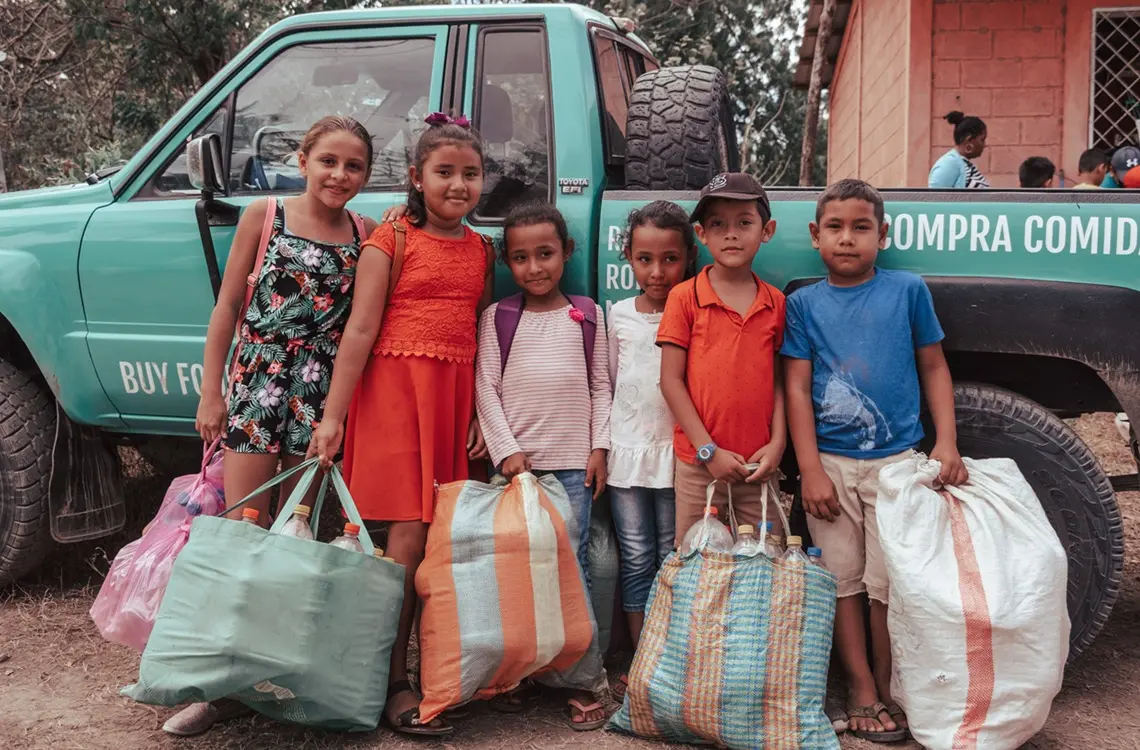
How did you come up with the idea for this concept?
Through different life events. My mother brought me up to believe that we have to take care of our environment and that there is always a way to do this. At the same time, my father comes from Morocco, and even as a young boy, I witnessed the effects of poverty. That had a big impact on me. In addition, my banking apprenticeship taught me how money works and how it can be used to help others. My Bachelor's degree at ZHAW was also a game-changer, and the idea came to me during the semester break. To this day, the knowledge I gained from my studies helps me in my everyday life. Finally, a visit to Nicaragua helped bring the concept to fruition. I saw with my own eyes the violent suppression of protests and the poverty, hunger, and plastic pollution that go hand in hand with that.
The BSc in International Management was tailor-made for me. As a "social entrepreneur," I can highly recommend this degree program to everyone. It is particularly suitable for people wanting to establish a start-up or work in a company that requires a broad range of skills.
Khalil Radi
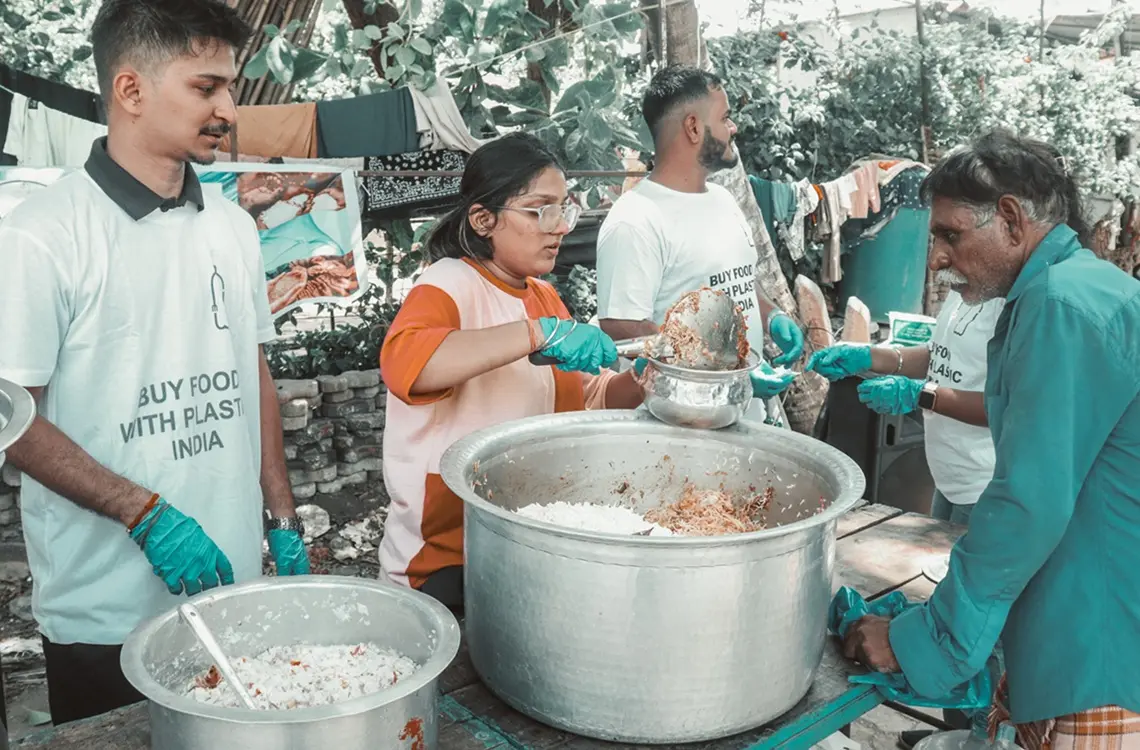
How has Buy Food with Plastic evolved in recent years?
Well, we have certainly grown. We no longer simply collect plastic and distribute meals but also run other projects. Initially, we only offered our educational activities at community events, but now they are part of the curriculum at schools in all three countries. We also have a project called "Empowerment for Entrepreneurship" that aims to show local people how they can escape poverty with the help of entrepreneurship. For example, we teach people how to make their own products from the plastic they collect. The long-term goal is for the local population to continue running these projects without our involvement and benefit directly from them. Last but not least, our team is growing! We have been around since 2018, and in the first two years everything in Switzerland was organized on a voluntary basis. But for four years now, we have been able to pay wages – and not just here, but where our work has the greatest impact – in Nicaragua, Ghana, and India. In these countries, we now have a strong and dedicated team who put our vision into practice every day.

What further plans are there for Buy Food with Plastic?
We are actively working towards becoming non-dependent on financial donations. We want to grow, have a greater impact, and tackle even larger projects. Yes, this means more costs, but larger projects also mean our local teams can become self-supporting over time and financed without donations. Our biggest 2025 project toward self-sustainability is constructing a larger recycling plant in Nicaragua. Another project we will be testing in Nicaragua from 2025 allowing the public to refill their soap or cleaning product containers at our store. To do this, we drive around the communities in a truck and go from door to door. Recycling is important, but it would be even more effective if we could reduce the amount of plastic in circulation from the outset. Each refill process not only saves waste but also reduces plastic consumption in the long term and, if we scale up even further, the need for new plastic containers.
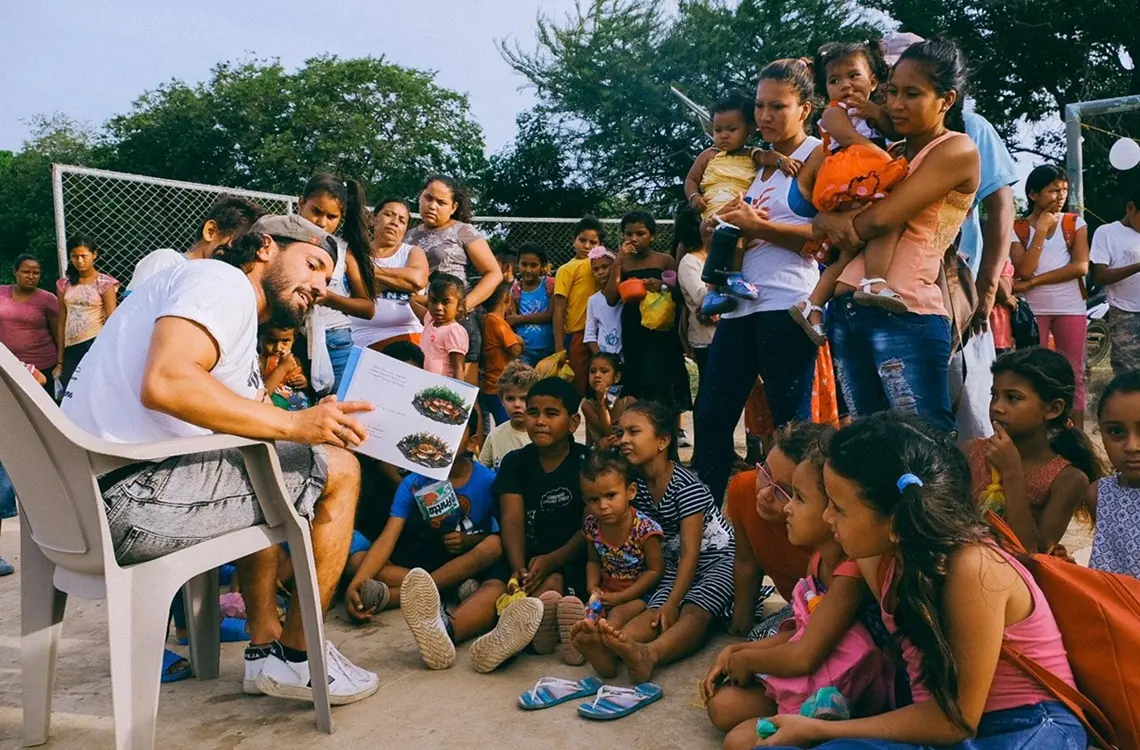
What products do you make from the plastic you collect?
It all depends on what our customers want. You can make so many things out of plastic because almost everything is made from it these days. For example, a telecommunications company from Germany has ordered 10,000 ice scrapers from us for €3 each. This leaves us with around €20,000 after deducting production costs, which we can use to distribute meals and pay our staff. So, if someone needing 100,000 light switches or a car part reads this interview, please contact us! We can produce many useful things, either by ourselves or with the help of partners. And it's also great to tell end-users that when they buy one of our products, they are giving people in need something to eat and helping cut down on the amount of plastic in our environment.
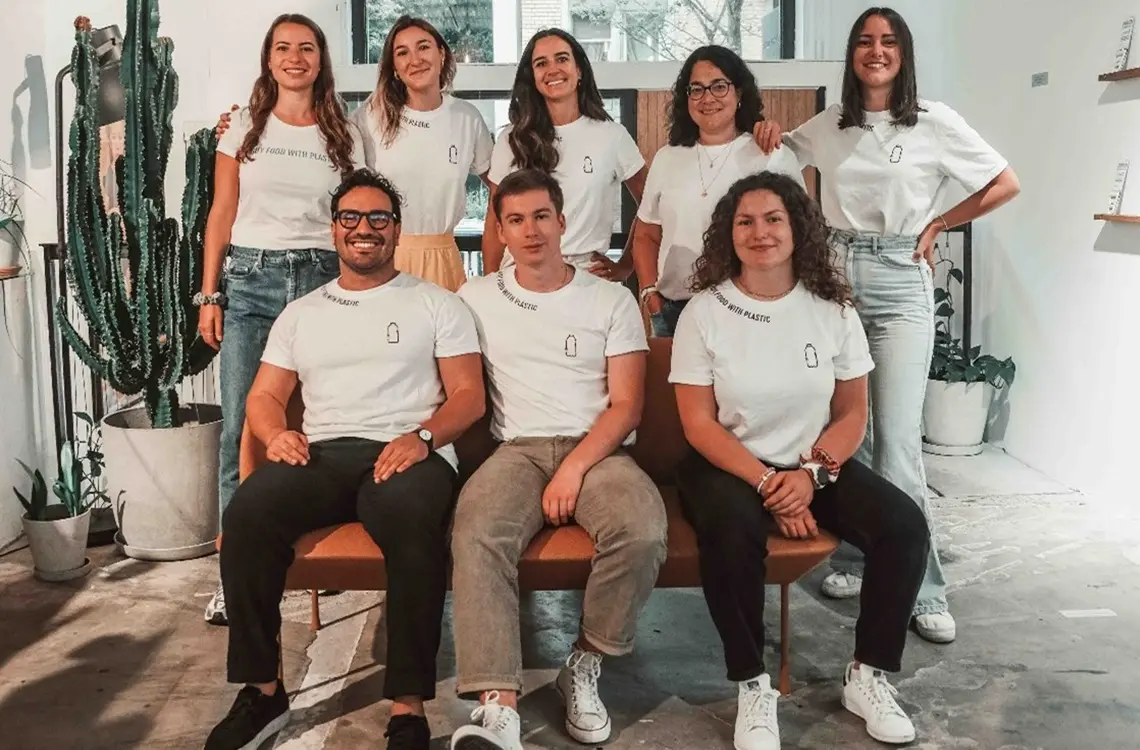
You are a former ZHAW student in the BSc in International Management program. What did you take away from your studies that now helps you in everyday business life?
Honestly, there is no part of the program that doesn't still help me today. For example, I gained a lot of valuable knowledge from the project management module. I also learned negotiation techniques, and the project work that you can do during your studies at ZHAW gave me practical experience. Today, this accounting knowledge helps me create precise budget plans for our projects and then show transparently how financial donations are used. I also completed an exchange in Colombia, where I learned Spanish. Projects in Nicaragua would not have been possible without language skills. Yes, the BSc in International Management was tailor-made for me. As a "social entrepreneur," I can highly recommend this degree program to everyone. It is particularly suitable for people wanting to establish a start-up or work in a company that requires a broad range of skills.
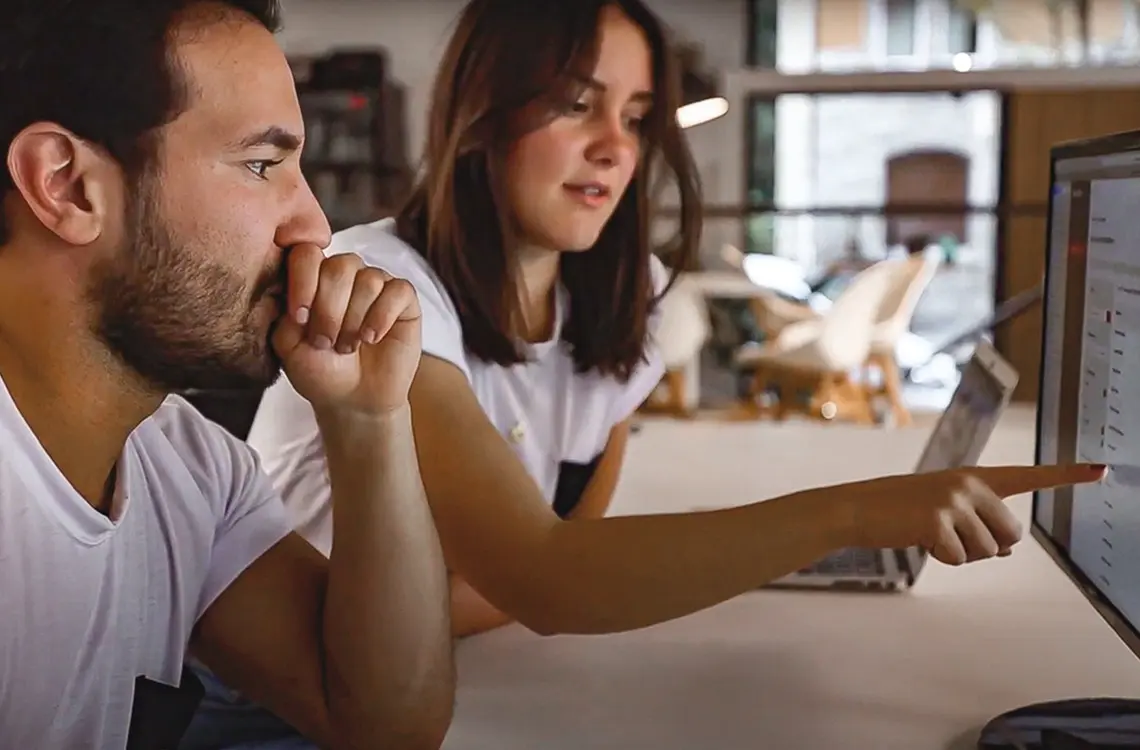
Do you have a lasting memory from your time at ZHAW?
At the very beginning of my studies, Petra Barthelmess [ZHAW professor and Head of the MSc in International Business program] said something that has stayed with me to this day: "Culture eats strategy for breakfast." Our very first community event confirmed the wisdom of those words. One of our local partners told me we had to buy a piñata for the event. I didn't like the idea. Our money was from donations, so we couldn't just do what we wanted with it. But he said we should trust him – there was a civil war, people needed hope, and the children would love it. He was absolutely right. It was a huge party, and to this day, a piñata is an integral part of our community events there. It encourages people to join in and brings so much joy from a comparatively small gesture. Petra Barthelmess was right – you can put as much effort as you like into the strategy, but in the end, it's worth nothing if you ignore the local culture.
Get more insights into ZHAW International Business:
Continuing Education International Management
BSc in International Management
MSc in International Business
Further The Global Pulse articles